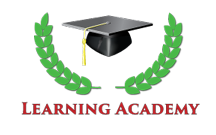
- Description
- Objectives
- Outline
- Materials
- System Requirements
Technology and content area curriculum should be partnered in such a way to enhance not just learning for the students, but also increase enthusiasm for the teachers. Students today have at their fingertips access to a variety of information and communications that did not exist when their teachers were children. Students seamlessly integrate new technologies into their lives in ways that mystify many adults. Our classrooms must capture and keep students’ attention and focus. Today that means utilizing as much technology throughout each subject every day. Our course promotes the use of technology throughout the classroom. In our class, students will be introduced to the most powerful instructional tool of today to enhance classroom instruction and push the boundaries to challenge all students to think and learn in meaningful ways.
After completing this course, you should be able to:
- Recognize how to integrate technology into the classroom
- Recall how to leverage technology for visual and auditory learning
- Describe how to use technology across learning preferences
- Identify how to utilize technology for meeting adaptive needs
Using Technology in Your Classroom Module 1
Technology Integration
In our first module, we dive into the various ways that technology can be integrated into your classroom to support and achieve your instructional goals. We discuss children’s privacy laws, internet safety, information literacy, and copyright laws for K-12 educators.
- Integration Approaches
- Digital-Age Teaching
- Internet Safety
- Information Literacy
- Copyright for K-12
Using Technology in Your Classroom Module 2
Leveraging Technology for Visual and Auditory Learning
Every school and district have their own set of shared values, cultures, and social practices around technology. In this module, we look at how technology has changed aspects of learning, as well as how to leverage technology for visual and auditory learning.
- Affordances of Digital Devices
- Technology in Schools
- Drawings & Photography
- Instructing with Visuals
- Listening, Writing, & Blogging
Using Technology in Your Classroom Module 3
Leveraging Technology across Learning Preferences
In module three, we learn how to leverage technology across learning preferences. We discuss tactile learning, virtual experiences, how to implement technology across multiple content areas, and what technology looks like for multilingual learners.
- Kinesthetic/Tactile Learning
- Virtual Experiences
- Multiple Content Area Interactives
- Conferencing & Collaboration
- Technology for Multilingual Learners
Using Technology in Your Classroom Module 4
Leveraging Technology for Meeting Adaptive Needs and Teacher Efficiency
In our final module, we discuss how to differentiate instruction for adaptive learning. We take a look at different types of assistive apps and reading supports. We also describe how to leverage technology for teacher efficiency and professional development.
- Speech to Text/Text to Speech
- Reading Support
- Assistive Apps
- Learning Management Systems
- Instructional Support Websites
**Outlines are subject to change, as courses and materials are updated.**
Ed4Career is committed to being both environmentally conscious and making it easier for you to study! We’re making your education mobile! All of our textbooks are now provided as eTextbooks. You can access them on your laptop, tablet, or mobile device and can study anytime, anywhere.
The move away from physical books to eTextbooks means you get the latest, most up-to-date version available. This also makes your training more accessible, so you can study anywhere you have your phone or tablet. The best part is that all materials are included in your training cost so there are NO extra fees for books!
Internet Connection
- Broadband or High-Speed - DSL, Cable, and Wireless Connections
*Dial-Up internet connections will result in a diminished online experience. Classroom pages may load slowly and viewing large audio and video files may not be possible.
Hardware Requirements
- Processor - 2GHz Processor or Higher
- Memory - 1 GB RAM Minimum Recommended
PC Software Requirements
- Operating Systems - Windows 7 or higher
- Microsoft Office 2013 or higher. Also, you could use a general Word Processing application to save and open Microsoft Office formats (.doc, .docx, .xls, .xlsx, .ppt, .pptx)
- Internet Browsers - Google Chrome is highly recommended
- Cookies MUST be enabled
- Pop-ups MUST be allowed (Pop-up Blocker disabled)
- The Kindle Reader App or VitalSource Bookshelf App are needed for many of our courses (No special equipment needed. This can be downloaded for FREE onto your computer.)
- PowerPoint Viewer (if you do not have PowerPoint)
- Adobe PDF Reader
- QuickTime, Windows Media Player &/or Real Player
MAC Software Requirements
- Operating Systems - Mac OS x 10 or higher with Windows
- Mac office programs or a Word Processing application to save and open Microsoft Office formats (.doc, .docx, .xls, .xlsx, .ppt, .pptx)
- Internet Browsers- Google Chrome is highly recommended
- Cookies MUST be enabled
- Pop-ups MUST be allowed (Pop-up Blocker disabled)
- The Kindle Reader App or VitalSource Bookshelf App are needed for many of our courses (No special equipment needed. This can be downloaded for FREE onto your computer.)
- PowerPoint Viewer (if you do not have PowerPoint)
- Adobe PDF Reader
- Apple QuickTime Media Player


